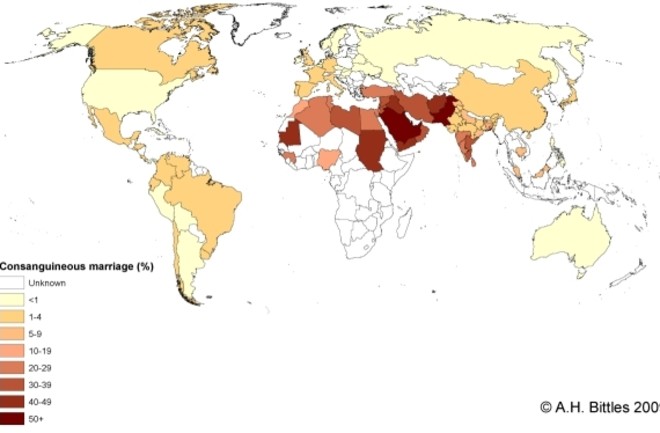- A recent study revealed that a significant number of cousin marriages are common in Pakistani women in Bradford, UK.
- This practice, while rooted in cultural traditions, carries significant health risks for their children.
- The study has sparked a debate in the UK about the potential need for legislation to ban first-cousin marriages, balancing public health concerns with cultural sensitivities.
A recent study published by Wellcome Open Research has highlighted a whopping 46% of British Pakistani women in Bradford, UK having children with their cousins. Marriages within the family is common in Muslim communities around the world. The study reveals a huge majority following this practice which is deeply rooted in cultural traditions even though it has potential health risks for the children born out of cousin marriages.
The study, titled Changes in Prevalence and Patterns of Consanguinity in Bradford, UK, reveals that only 37.6% of women from Pakistani backgrounds were unrelated to the father of their child. This statistic has become the talk of the town in the United Kingdom about the health implications of cousin marriages, which are strongly linked to an increased risk of genetic disorders, and whether legislative measures are needed to address the issue.

The Genetic Risk Involved
Cousin marriages, while culturally significant in many communities, pose notable health risks due to the potential for recessive genetic disorders. Such disorders occur when two copies of a defective gene are inherited, an outcome more likely in cousin families. These conditions, which include severe metabolic, neurological, and developmental disorders, can significantly impact a child’s quality of life.
Professor Eamonn Sheridan, a clinical geneticist at the University of Leeds, emphasized the danger, stating,
“The probability of inheriting two copies of a defective gene rises sharply in consanguineous families. This can lead to a range of serious health conditions, many of which are life-limiting or severely disabling.”
Bradford’s demographic profile includes a substantial South Asian population, with individuals of Pakistani descent representing a significant proportion. Cousin marriages in this community often come from cultural practices aimed at preserving family ties and wealth. However, the study also notes a gradual shift among younger generations, who are choosing to look outside the family for their life partners.
Also Read:
Fighting Brain Rot in Pakistan Amongst the Younger Generation
UK to Ban First-Cousin Marriages in UK?
The findings have reached the UK Parliament, sparking a motion to ban first-cousin marriages. Advocates of the ban argue that the practice contributes to public health risks and strains healthcare resources. Richard Holden MP cited examples from other countries like Norway, which have already outlawed cousin marriages.
“It is clear that the practice is not really conducive to modern British society.”
However, the proposed legislation has faced backlash. Independent MP Iqbal Mohamed argued that it unfairly targets specific ethnic groups, risking further discrimination of already vulnerable communities.
“We must respect people’s right to make personal choices while providing them with the information and resources to make informed decisions,” he said.
The NHS (England’s healthcare system) has initiated genetic counselling programs in high-risk areas, offering families personalized assessments and guidance on reproductive health. These efforts are crucial in helping communities understand the risks without undermining their cultural values.
As policymakers navigate this sensitive issue, the Bradford study highlights the urgency of addressing the matter in a manner that is both effective and respectful of cultural diversity.
